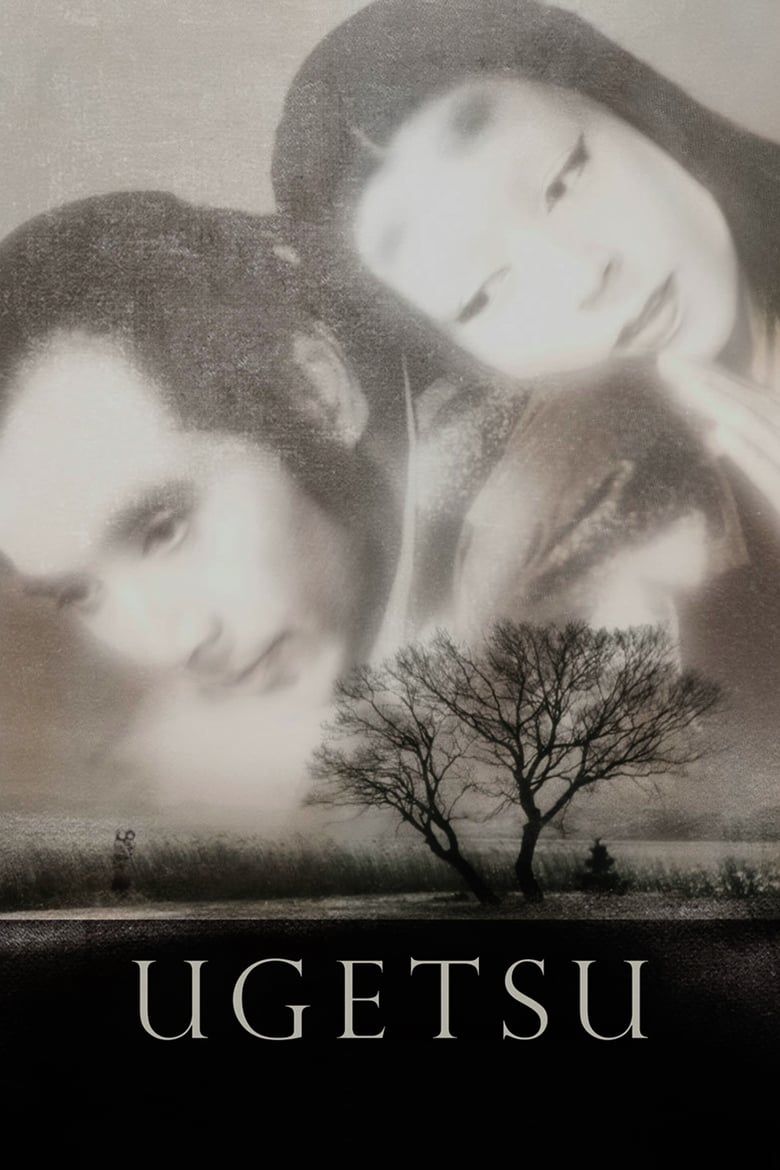This 100% Rotten-Tomatoes Rated Samurai Fantasy Film Is a Mesmerizing, Unforgettable Ghost Story
[ad_1]
Ghost tales aren’t at all times horror tales—a minimum of not within the sense that they’re speculated to scare us past our wits and maintain us up at night time. For example, certainly one of our favourite tales across the vacation season is a ghost story that’s nothing greater than a easy morality play. Charles Dickens‘ A Christmas Carol is not precisely full of frights and psychological torments as a lot as it’s with classes about displaying kindness to others and never taking the nice issues in life with no consideration. Likewise, one of the crucial revered motion pictures within the historical past of Japanese cinema can also be a ghost story that’s not meant to boost our hair, however merely to make us take into consideration the place our least likable traits may lead us. Directed by acclaimed filmmaker Kenji Mizoguchi, 1953’s Ugetsu goes head-to-head with 1954’s Chikamatsu Monogatari in terms of figuring out which is his final masterpiece. So far as up to date critics go, there’s a clear tie: both movies hold a score of 100% on Rotten Tomatoes.
However, let’s be actual for a second: Rotten Tomatoes‘ scores are removed from being the ideal way of looking at such classic movies. One of the best ways of fascinated with such artworks is by taking in what they symbolize within the grand scheme of issues. Whereas Chikamatsu Monogatari is a robust story about adultery and inflexible social norms, Ugetsu shines by telling a narrative about greed and the harms of conflict. In a post-war situation, it’s a film that leaves little room for different interpretations, pointing fingers on the lies and the horrors behind tales of honor and glory. And what’s extra: its ghost story may not be scary, however it’s poignant and delightful.
‘Ugetsu’ Is an Anti-Conflict Morality Story
Ugetsu‘s anti-war message depends totally on the story of Tobei (Eitaro Ozawa) and Ohama (Mitsuko Mito). The film follows two males, Tobei and Genjuro (Masayuki Mori), as they every seek for their very own type of wealth and glory. Nonetheless, whereas Genjuro, a potter, needs solely to promote his wares to the wealthy inhabitants of the cities at present making the most of the unification wars of Sixteenth-century Japan, Tobei desires of becoming a samurai. Along with his eyes set on a shiny swimsuit of armor and a spear, he is prepared to depart all the things behind, together with his spouse, Ohama, so long as which means coming into a world wherein he will probably be entitled to vassals of his personal.
However Tobei’s journey shouldn’t be with out its mishaps. For starters, the story of glory that in the end leads him to change into a samurai is nothing however a lie. His grandiose speeches about how males want to review from the masters of martial artistry are empty chats meant solely to carry up a false splendid. And when he meets Ohama once more, she’s been forced into a life of sex work that she by no means desired for herself. Impoverished and violated, she blames her husband’s seek for army status in any respect prices for her shame.
In a post-war situation, this story most likely hit very near residence, as it’s a transparent message that there isn’t a glamour or glory to be present in conflict, solely lies and tragedy. To additional this level, the armies of Ugetsu are by no means painted as fearsome or noble. As an alternative, they’re however bands of hungry, rabid males who destroy all the things of their path. Perhaps the greatest tragedy of Tobei’s character is that he noticed these battalions not for who they honestly had been, however for the lie they wished others to imagine.
Greed Is a Highly effective Enemy in ‘Ugetsu’
Nonetheless, Tobei is not the one one to be deceived by a false splendid in Ugetsu—his enterprise associate, Genjuro, additionally falls prey to a delusion. All the time searching for the best items of clothes to deliver his spouse and for riches past his attain, Genjuro turns into enamored by Girl Wakasa (Machiko Kyo) when she pops up by his tent to purchase his wares. It’s hardly a spoiler to disclose that Lady Wakasa is a ghost that wishes to entrap Genjuro in her world, for as we’re launched to her allegedly stunning manor, we see nothing however a derelict residence surrounded by overgrown vegetation. Genjuro’s greed will get him caught up on this net of deceit and finally brings him to a tragic finish.
It will all be very fantastic and dandy if this was the ultimate message of Ugetsu, however it isn’t. Even in Genjuro’s story, the film is anxious with the horrors of conflict. In any case, Girl Wakasa shouldn’t be an evil spirit; she’s merely a lady whose life was taken by the battle earlier than she even received to expertise its pleasures and who’s now again from the useless to search out her companion. Although Genjuro should go away her to go on together with his personal life, we won’t assist however really feel for her. It’s a highly effective conclusion for a narrative that’s in regards to the greed of two males, sure, but additionally about one thing a lot greater: the greed for power and territory and the way it results in horrors past our earthly comprehension.
Ugetsu is on the market to stream on Max within the U.S.

Ugetsu
- Launch Date
-
September 7, 1954
- Director
-
Kenji Mizoguchi
- Forged
-
Machiko Kyo
, Mitsuko Mito
, Kinuyo Tanaka
, Masayuki Mori
, Eitaro Ozawa
, Sugisaku Aoyama
, Mitsusaburo Ramon
, Ryosuke Kagawa - Runtime
-
96 Minutes
- Fundamental Style
-
Drama
[ad_2]
Source link